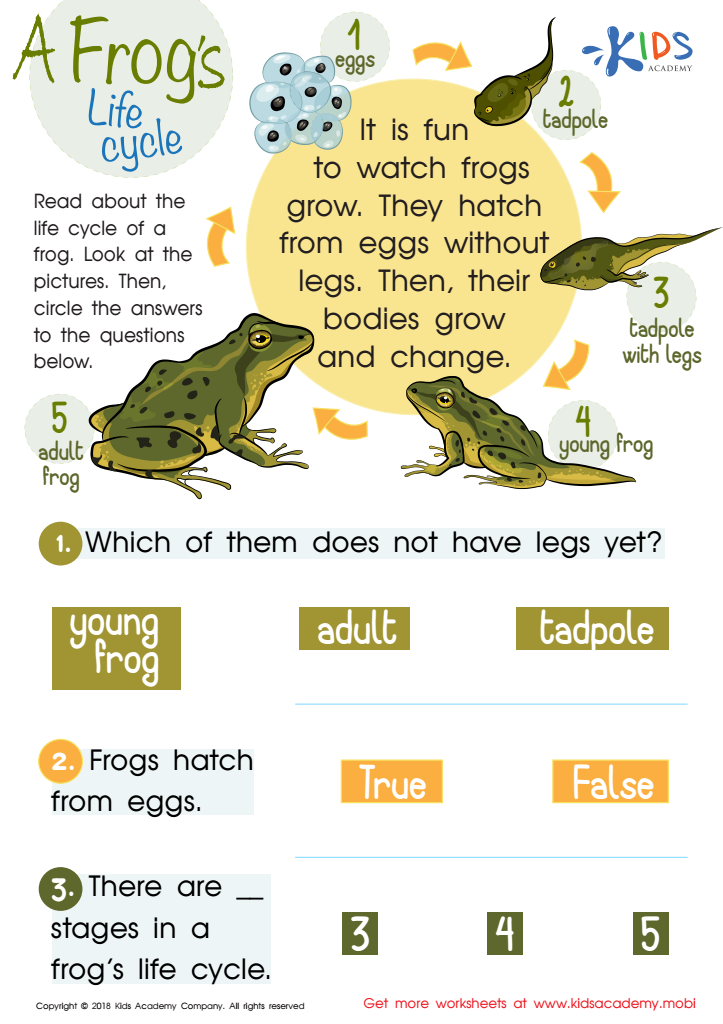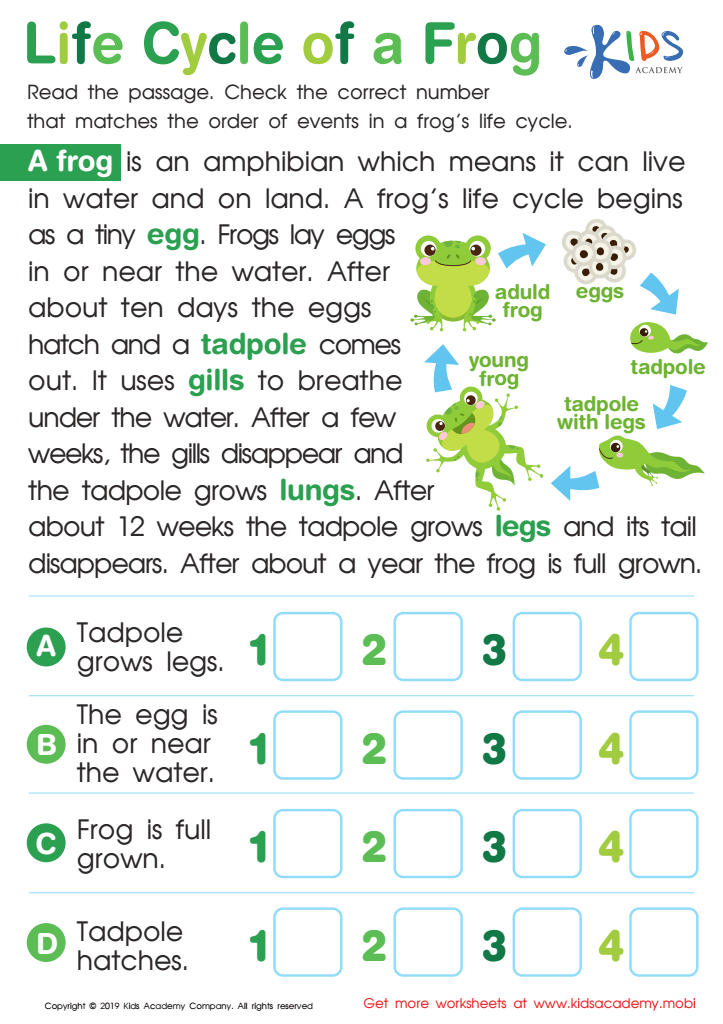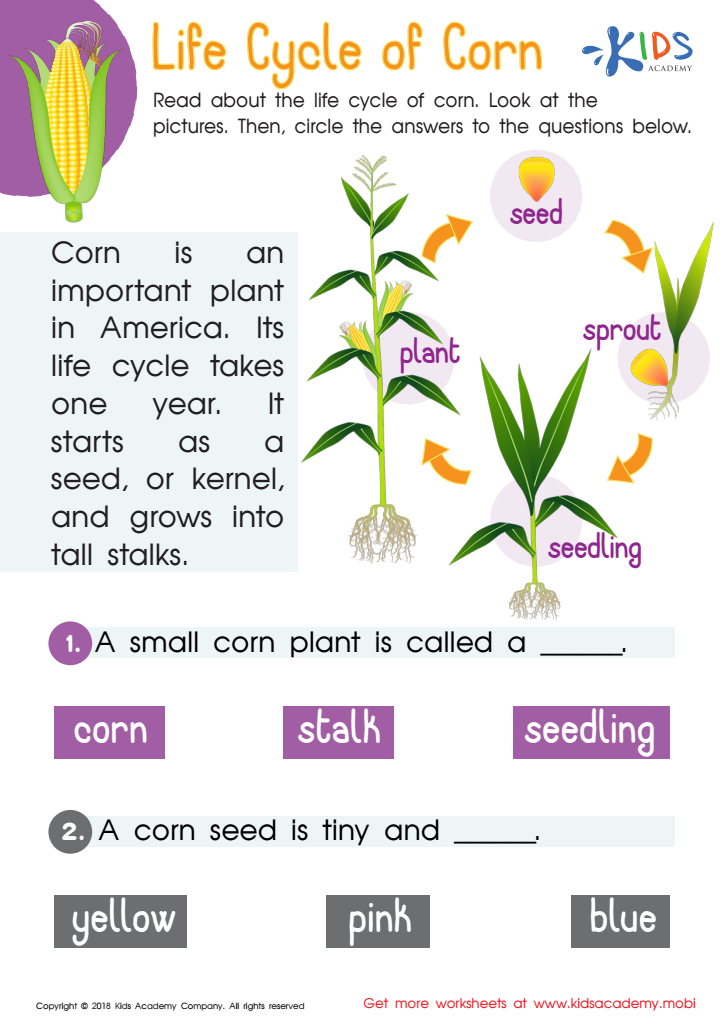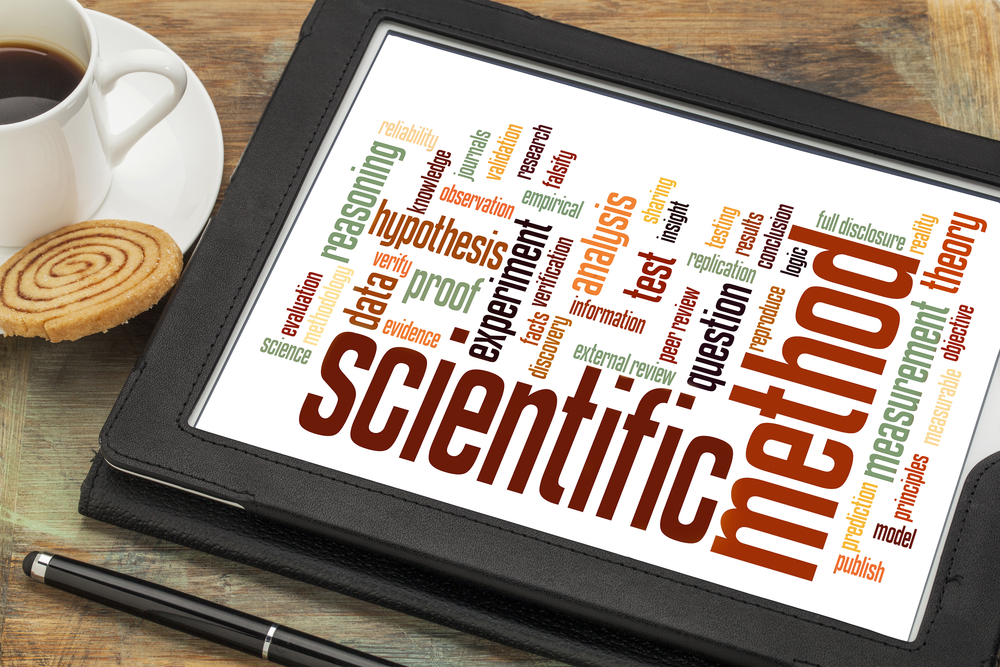Understanding life cycles Easy Grade 2 Worksheets
3 filtered results
-
From - To
Explore our "Understanding Life Cycles Easy Grade 2 Worksheets" designed to engage young learners in the fascinating world of life cycles. These worksheets provide an interactive and enjoyable way for Grade 2 students to grasp essential concepts about the stages of life for various organisms. With a variety of activities, including coloring, fill-in-the-blanks, and matching games, children will develop their critical thinking skills while learning about the growth and changes in plants and animals. Perfect for classroom use or at-home learning, our worksheets offer a fun approach to science education that fosters curiosity and understanding of the natural world.


A Frog’s Life Cycle Worksheet


Life Cycle of a Frog Worksheet


Life Cycle of Corn Worksheet
Understanding life cycles is vital for second graders as it lays a foundation for their knowledge of biology, ecology, and the world around them. For parents and teachers, fostering this understanding can cultivate curiosity and a sense of connection to nature.
Life cycles, which include the stages an organism goes through from birth to maturity, teach children about the interdependent relationships within ecosystems. By learning about the development of plants, insects, and animals, students begin to appreciate the diversity of life and the processes that sustain it. This knowledge also highlights the importance of conservation and the need to protect our environment.
Moreover, engaging with life cycles promotes critical thinking and scientific inquiry. Students can observe and document changes over time, enhancing skills such as observation, analysis, and classification. It empowers them to ask questions and seek answers, encouraging an active approach to learning.
Lastly, understanding life cycles can help children relate to broader themes, such as growth, change, and the passage of time. This can be a powerful lesson in empathy as they learn that all living organisms follow a cycle and face challenges throughout their lives. Emphasizing life cycles in education enriches the learning experience and lays the groundwork for responsible stewardship of our planet.
 Assign to My Students
Assign to My Students





















